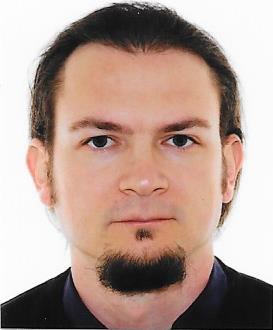Studying at the University of Verona
Here you can find information on the organisational aspects of the Programme, lecture timetables, learning activities and useful contact details for your time at the University, from enrolment to graduation.
Academic calendar
The academic calendar shows the deadlines and scheduled events that are relevant to students, teaching and technical-administrative staff of the University. Public holidays and University closures are also indicated. The academic year normally begins on 1 October each year and ends on 30 September of the following year.
Course calendar
The Academic Calendar sets out the degree programme lecture and exam timetables, as well as the relevant university closure dates..
| Period | From | To |
|---|---|---|
| Sem. 1A | Sep 24, 2018 | Nov 10, 2018 |
| Sem. 1B | Nov 19, 2018 | Jan 12, 2019 |
| Sem. 2A | Feb 18, 2019 | Mar 30, 2019 |
| Sem. 2B | Apr 8, 2019 | Jun 1, 2019 |
| Session | From | To |
|---|---|---|
| Sessione Invernale | Jan 14, 2019 | Feb 16, 2019 |
| Sessione Estiva (Gli esami sono sospesi durante la Sessione di laurea) | Jun 3, 2019 | Jul 27, 2019 |
| Sessione Autunnale | Aug 26, 2019 | Sep 21, 2019 |
| Session | From | To |
|---|---|---|
| Sessione Estiva | Jul 8, 2019 | Jul 13, 2019 |
| Sessione Autunnale | Nov 4, 2019 | Nov 9, 2019 |
| Sessione Invernale | Mar 30, 2020 | Apr 4, 2020 |
| Period | From | To |
|---|---|---|
| Festa di Ognissanti | Nov 1, 2018 | Nov 1, 2018 |
| Festa dell’Immacolata | Dec 8, 2018 | Dec 8, 2018 |
| Vacanze di Natale | Dec 22, 2018 | Jan 6, 2019 |
| Vacanze di Pasqua | Apr 19, 2019 | Apr 23, 2019 |
| Festa della liberazione | Apr 25, 2019 | Apr 25, 2019 |
| Festa del lavoro | May 1, 2019 | May 1, 2019 |
| Festa del Santo Patrono - S. Zeno | May 21, 2019 | May 21, 2019 |
| Festa della Repubblica | Jun 2, 2019 | Jun 2, 2019 |
| Vacanze Estive | Aug 12, 2019 | Aug 17, 2019 |
Exam calendar
Exam dates and rounds are managed by the relevant Humanistic Studies Teaching and Student Services Unit.
To view all the exam sessions available, please use the Exam dashboard on ESSE3.
If you forgot your login details or have problems logging in, please contact the relevant IT HelpDesk, or check the login details recovery web page.
Should you have any doubts or questions, please check the Enrollment FAQs
Academic staff
 carlo.callegaro@univr.it
carlo.callegaro@univr.it
Study Plan
The Study Plan includes all modules, teaching and learning activities that each student will need to undertake during their time at the University.
Please select your Study Plan based on your enrollment year.
1° Year
| Modules | Credits | TAF | SSD |
|---|
2° Year activated in the A.Y. 2019/2020
| Modules | Credits | TAF | SSD |
|---|
| Modules | Credits | TAF | SSD |
|---|
| Modules | Credits | TAF | SSD |
|---|
| Modules | Credits | TAF | SSD |
|---|
Legend | Type of training activity (TTA)
TAF (Type of Educational Activity) All courses and activities are classified into different types of educational activities, indicated by a letter.
Designing and evaluation of learning environments (2018/2019)
Teaching code
4S007374
Teacher
Coordinator
Credits
6
Language
Italian
Scientific Disciplinary Sector (SSD)
M-PED/04 - EDUCATIONAL RESEARCH
Period
Sem. 2A dal Feb 18, 2019 al Mar 30, 2019.
Learning outcomes
The course aims to describe conceptual bases of “learning-environments” approach, and to help in the understanding of the formative impact of some strategies/learning environments. The course also aims to identify the most appropriate contexts for their use: in/out/beyond the classroom. Some efficient plants of learning environments will be analysed and evaluated, in the trainer’s view, also focusing on digital technologies and Internet.
By the end of the course students will be able to:
- understand the theoretical roots of the "learning environments" approach;
- know approaches (models and tools) to assessing learning environments;
- analyse and conceive effective proposals for designing learning environments, including using technologies.
Program
The course will deal with the following topics:
• Designing complex learning environments
• Human capital and human capital formation in firms and other work organizations
• The concept of boundaryless learning
• Instructional design and successful learning environment
•Process, role and technology as variables of learning environment
• The primacy of experience and the people value
• Immersive and simulated learning environments
The evaluation
• Evaluating training design: problems and operational tools
• Evaluation of learning environments: definitions and approaches;
• The systemic approach to evaluation;
• Assessment of needs and screening of solutions;
• Evaluation planning and evaluation design
Bibliography
Amicucci F, Gabrielli G, Boundaryless learning. Nuove strategie e strumenti per la formazione, Franco Angeli, Milano 2013
Baldetti G., Ghezzi G.M., Ghiringhelli C., Nacamulli R.C.D., Simulando si impara. Progettare e gestire ambienti complessi di apprendimento, Franco Angeli, Milano 2015
Heckman J.J., Kautz T. Formazione e valutazione del capitale umano, Il Mulino, Bologna 2016
Methodological aspects
As far as possible, the course method aims at forming an experience of learning environments through the participants’ involvement in the activities both in the classroom and online. The participation in online activities might be an alternative to the study of some texts, or part of them, for the exam. For this reason, attending lectures is highly recommended.
The lectures consist of:
• Frontal lessons
• Online activities
• Analysis of texts and film material
• Discussion on chosen subjects and indicated material
• Witnesses
• Practice exercises
E-learning space dedicated to the course.
Beyond the lecture activities, in the online space on Moodle, it will be possible to share materials, exchange and realize the project work. In this space, there will be the contents of the lectures. Space will be available until the end of the exams.
| Author | Title | Publishing house | Year | ISBN | Notes |
|---|---|---|---|---|---|
| Amicucci F., Gabrielli G. (a cura di) | Boundaryless learning. Nuove strategie e strumenti per la formazione | FrancoAngeli | 2013 | 978-88-204-0593-9 | |
| Heckman J.J., Kautz T. | Formazione e valutazione del capitale umano | il Mulino | 2016 | 978-88-15-26770-2 | |
| Baldetti G., Ghezzi G.M., Ghiringhelli C., Nacamulli R.C.D., | Simulando si impara. Progettare e gestire ambienti complessi di apprendimento | Franco Angeli | 2015 | 978-88-917-1158-8 |
Examination Methods
Learning assessment
The learning assessment will be made for all students though two different assessment tolls:
• A written examination with some open questions and some closed questions;
• A short paper (abstract) on the content of the course starting from a chosen chapter of the bibliography (or a topic presented during the lectures, for those who attend classes)
Before the written task, the students must submit short paper according to the following guidelines:
• Short paper (abstract maximum 5 pages) for those who attend classes
• Short paper (abstract at least 8 pages) for those who do not attend classes
Participation in the project work constitutes an element of evaluation for the examination.
The abstract must be sent to beniamino.caputo@univr.it at least 7 days before the written exam.
Rating
For the purpose of the exam grade, will be considered (for those who attended the course or at least the on-line laboratory):
• Written examination, up to 15 points;
• Short paper, up to 7 points
• Project work, up to 8 points
For non-attending students who do not participate in project work activities, the evaluation will be focused on the quality of the abstract and on the written test.
Type D and Type F activities
Modules not yet included
Career prospects
Module/Programme news
News for students
There you will find information, resources and services useful during your time at the University (Student’s exam record, your study plan on ESSE3, Distance Learning courses, university email account, office forms, administrative procedures, etc.). You can log into MyUnivr with your GIA login details: only in this way will you be able to receive notification of all the notices from your teachers and your secretariat via email and soon also via the Univr app.
Graduation
Documents
| Title | Info File |
|---|---|
|
|
pdf, it, 99 KB, 13/10/23 |
|
|
pdf, it, 101 KB, 10/04/24 |
List of theses and work experience proposals
Student mentoring
Gestione carriere
Linguistic training CLA
Practical information for students
Documents
| Title | Info File |
|---|---|
|
|
pdf, it, 325 KB, 02/05/23 |
|
|
pdf, it, 212 KB, 02/05/23 |
|
|
pdf, it, 131 KB, 02/05/23 |
Stage e Tirocini
Lo/a studente/essa tirocinante curricolare sarà chiamato/a svolgere, presso gli Enti che lo ospitano, attività che prevedono competenze associate alla figura professionale dello Psicologo, in particolare lo Psicologo per la formazione, e nello specifico:
- attività di progettazione, realizzazione e valutazione dell’efficacia di interventi di percorsi formativi, nonché attività volte alla facilitazione dell'apprendimento nel ciclo di vita, in particolare in contesti organizzativi;
- attività che prevedano l’analisi delle relazioni interpersonali, dei contesti organizzativi e delle pratiche lavorative;
- attività che prevedano la gestione di processi organizzativi complessi, per lo sviluppo e la valorizzazione delle persone all'interno delle organizzazioni;
- attività di progettazione, realizzazione e valutazione di interventi psicologici volti all’orientamento scolastico e professionale;
- attività che prevedono l’uso di tecniche e strumenti di analisi delle situazioni e dei contesti, di raccolta di informazioni, e di interpretazione dei risultati, principalmente in relazione ai contesti organizzativi.
Tali attività si svolgono in Aziende ed Enti accreditati presso l’Ateneo. Lo/la studente/essa sarà seguito da un tutor accademico e da un tutor aziendale. Alle attività di tirocinio sono attribuiti n. 9 CFU (pari a 225 ore).
Linee Guida per lo Svolgimento dei Tirocini Curriculari
- Tutte le informazioni in merito agli stage per futuri studenti sono disponibili alla pagina Stage e tirocini.
- Tutte le informazioni in merito agli stage per studenti iscritti sono pubblicate in MyUnivr - come fare per - stage e tirocini.
- Tutte le informazioni in merito agli stage per le aziende sono disponili alla pagina Stage e tirocini per azienze.


 3346708113
3346708113






